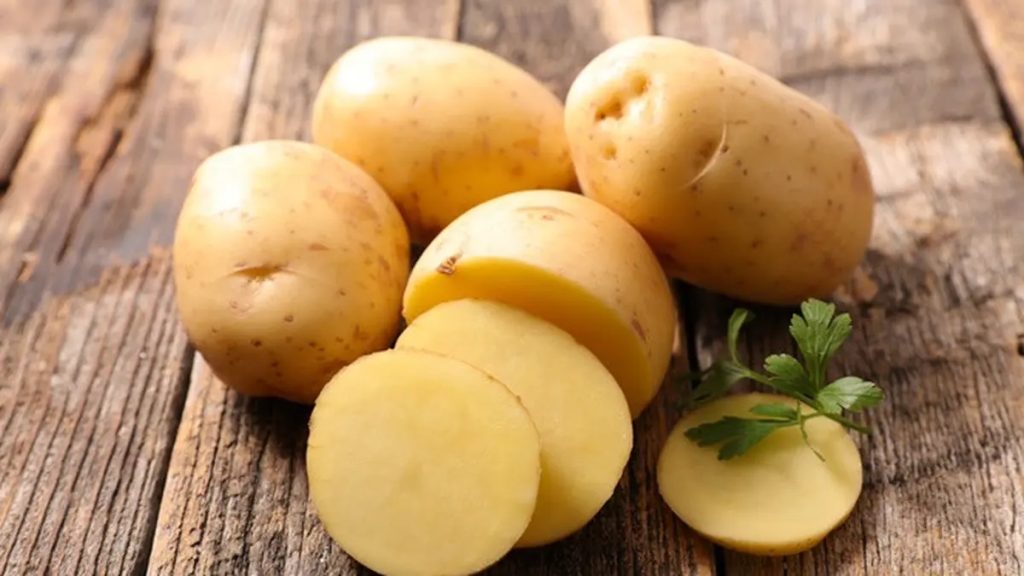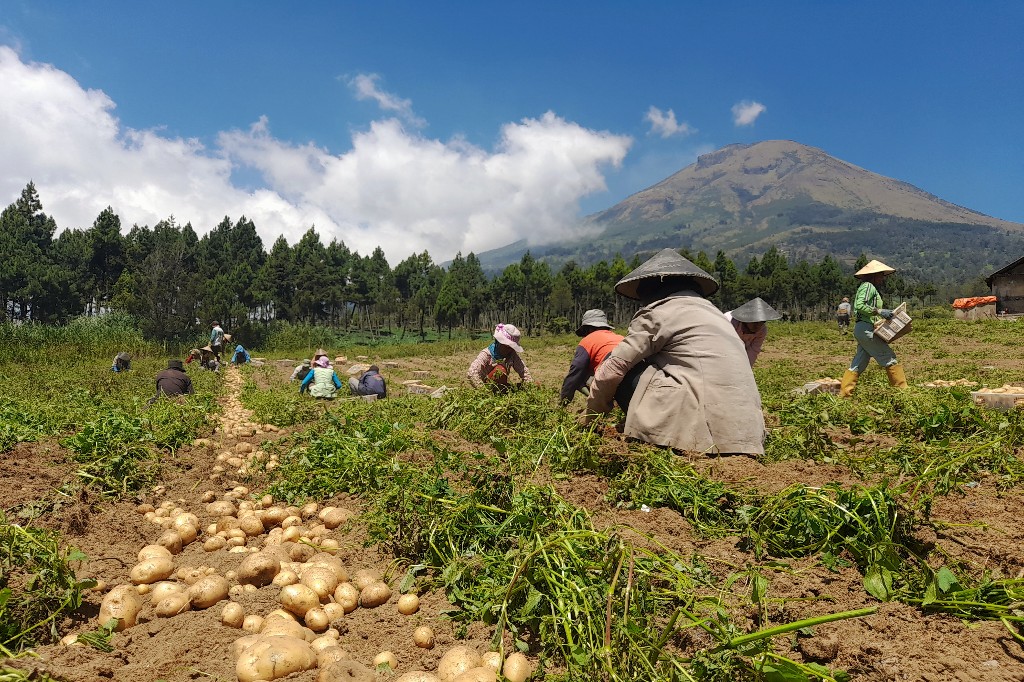Potatoes, scientifically known as Solanum tuberosum, are one of the world’s most important food crops. Belonging to the Solanaceae family, potatoes serve as a dietary staple for millions of people and are a vital ingredient in countless culinary innovations. Behind their simplicity lies a wealth of nutritional benefits, making them one of the most sought-after agricultural products globally.
This article explores the origins, nutritional value, health benefits, culinary uses, and business opportunities associated with potatoes.
History and Cultivation of Potatoes
Potatoes were first cultivated in the Andes region of South America over 7,000 years ago. After being introduced to Europe by Spanish explorers in the 16th century, they quickly spread worldwide and became a staple in countries across Europe, Asia, and Africa.
Potatoes thrive in well-drained, nutrient-rich soils. Their cultivation involves soil preparation, planting seed potatoes (cut pieces with “eyes”), and intensive care to protect them from pests and diseases like late blight. Countries such as China, India, Russia, and the United States are among the largest producers of potatoes globally.
Nutritional Content of Potatoes
Although often perceived as a calorie-dense food, potatoes are rich in essential nutrients. A 100-gram serving of boiled potatoes (without skin) contains:
- Calories: Around 87 kcal
- Carbohydrates: 20 grams
- Protein: 2 grams
- Fiber: 1.8 grams
- Vitamin C: 20% of the daily recommended intake
- Potassium: 10% of the daily recommended intake
- Vitamin B6: 15% of the daily recommended intake
Potatoes also contain antioxidants like polyphenols, which combat free radicals in the body. With their complex carbohydrates, potatoes provide a steady energy source and promote longer-lasting satiety.
Health Benefits of Potatoes
Potatoes offer numerous health benefits, making them a vital and versatile dietary option:
- Energy Source: Complex carbohydrates in potatoes supply sustained energy, making them ideal for daily activities or intense physical exertion.
- Heart Health: Potassium content helps regulate blood pressure by counteracting excess sodium.
- Digestive Support: Fiber aids in promoting healthy digestion and preventing constipation.
- Immune Boost: High levels of vitamin C strengthen the immune system and ward off infections.
- Low in Fat: Naturally low in fat, potatoes are a great choice for low-fat diets.
- Brain Function: Vitamin B6 aids in producing neurotransmitters, enhancing brain health and mental well-being.
However, the health benefits depend on how potatoes are prepared. Cooking methods such as frying or adding excessive butter and cream can increase calorie and fat content, which should be moderated.
Culinary Uses of Potatoes
Potatoes are one of the most versatile ingredients and can be prepared in countless ways. From traditional dishes to modern recipes, potatoes always take the spotlight. Popular ways to prepare potatoes include:
- Boiled or Steamed: Retaining most of their nutrients, boiled potatoes make a great side dish or salad base.
- Fried: Foods like french fries or hash browns are global favorites, albeit less healthy.
- Baked: Whole or sliced, baked potatoes achieve a crispy exterior and soft interior.
- Mashed: Mashed potatoes, often served with gravy, complement meat dishes perfectly.
- Soups and Stews: Potatoes add creaminess and a filling texture to soups and stews.
- Snacks: Potato chips are among the most popular snacks worldwide.
- International Dishes: Examples include Italian gnocchi, Spanish tortilla de patatas, and Indian aloo paratha.
Potatoes are also processed into products like potato starch, potato flour, and baby food.
Business Potential of Potatoes
Potatoes play a significant role in the global food industry. With growing demand for both fresh and processed products, potatoes present lucrative business opportunities. Key sectors in the potato industry include:
- Production and Distribution: Fresh potatoes remain a primary product in local and international markets.
- Frozen Foods: Frozen french fries and other potato-based items are in high demand globally.
- Processed Products: Potato chips, instant mashed potatoes, and potato flour are high-value products.
- Non-Food Industry: Potato starch is used in textiles, pharmaceuticals, and cosmetics.
- Sustainable Farming: Organic potato farming is gaining attention as environmental awareness increases.
Innovation and Sustainability in the Potato Industry

With technological advancements, innovation in potato production and processing is continually evolving. Precision agriculture techniques are now used to enhance yield and reduce environmental impact.
Furthermore, potato waste can be repurposed into bioenergy or organic fertilizer, promoting environmental sustainability. Potato producers are also investing in eco-friendly packaging to appeal to environmentally-conscious consumers.
Conclusion
Potatoes are one of the most versatile and valuable crops in the world. From home kitchens to gourmet restaurants, and from local markets to global exports, potatoes remain a beloved choice. With their combination of health benefits, culinary flexibility, and substantial business potential, potatoes stand as a cornerstone in global food security.
So, how do you enjoy your potatoes today?
